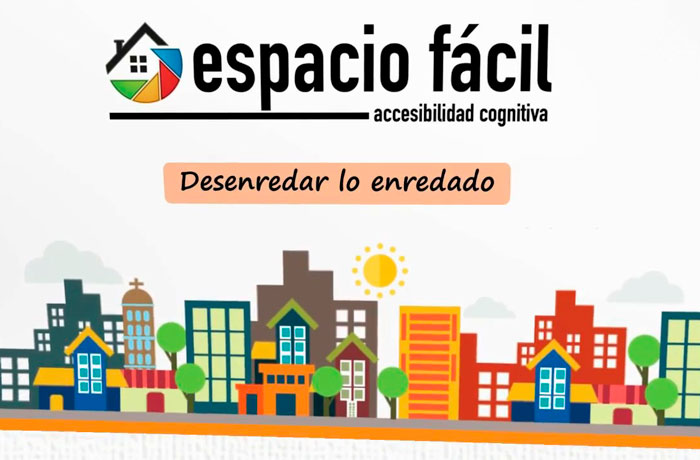El primer Índice de Accesibilidad Cognitiva en Edificación se presenta en el IETcc
- The publication aims to be an engine for the development of actions related to the cognitive spectrum within the context of universal accessibility and to serve as a tool to generate more inclusive construction
- The Index was presented within the framework of the ‘Espacio Fácil’ (Easy Space) project, a group that includes Vía Célere, Afanias, CSEU La Salle and the Association for the Easy Understanding of Spaces and Buildings.
Today, the Eduardo Torroja Institute of Construction Sciences (IETcc), belonging to the CSIC, has presented the Index of Cognitive Accessibility in Building, a pioneering publication in this area. The text, developed by the architect Berta Brusilovsky, aims to be a reference tool within the Real Estate Sector to generate more accessible spaces.
The index is the numerical expression of the list of 20 indicators of cognitive accessibility that, as a sign, reflects the situation in which an environment or building is located at a certain moment.
In developing the Index, they included the conclusions of the research project ‘Espacio Fácil’, a group composed of Vía Célere, CSEU La Salle, Afanias and the Association for the Easy Understanding of Spaces and Buildings, which researches and makes available to all society the capacity to evaluate environments and buildings. Over the last year it developed research based on the design model and the participatory methodology of the architect Berta Brusilovsky, to evaluate, design and adapt buildings, to transform them into understandable spaces. It received the participation of people with intellectual disabilities as cognitive evaluators.
The Index takes into account aspects such as the orientation, attention, perception or memory of individuals, and relates them to architecture and urbanism to assess the different needs and barriers that may arise when visiting spaces, and thus be able to generate a special support system to enable their autonomous use.
According to Berta Brusilovsky, “the design of environments and buildings must find their own readable and functionally understandable language. The Index of Cognitive Accessibility will allow this spatial adaptation to become closer to the diverse functioning and throughout people’s human cycle”.
Also, in the words of Carlos Valdés, Director of the Vía Célere Foundation, “the presentation of this Index is a step towards more inclusive construction. We would like initiatives such as these to promote dialogue within the sector, to continue researching in the area of universal accessibility”.
Borja Frutos, Deputy Director of the IETcc, highlighted the innovative nature of this project and the need for initiatives such as this, which allow the technical advancement of the cognitive component within universal accessibility in the building sector.


